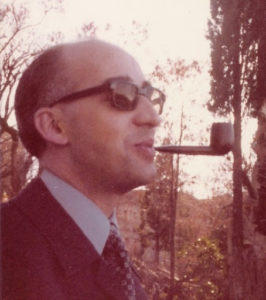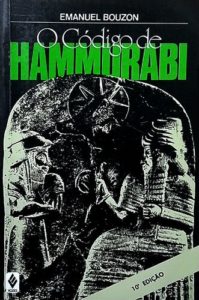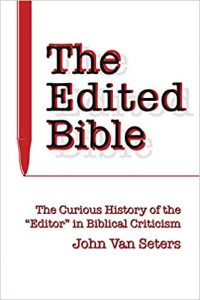Acabei de tomar conhecimento através de e-mail enviado para a lista de discussão ANE-2 e de nota da Assessoria de Comunicação Social da PUC-Rio do falecimento de Emanuel Bouzon. O ilustre professor e pesquisador faleceu ontem, dia 28 de março de 2006, aos 73 anos de idade, vítima de câncer pulmonar, depois de duas semanas internado no Hospital Barra D’Or, no Rio de Janeiro.
Emanuel Bouzon nasceu em 1933. Estudou Filosofia na PUC-RJ, onde graduou-se em 1954. Cursou Teologia na Pontifícia Universidade Gregoriana, Roma, ordenando-se padre em 1958. Estudou Ciências Bíblicas no Pontifício Instituto Bíblico, Roma, e Ciências Orientais no Instituto Oriental de Roma e especializou-se em Assiriologia, Egiptologia, Semitistica e História Antiga na Westfälische Wilhelms-Universität de Münster, Alemanha, onde estudou com o célebre orientalista Wolfram von Soden. Em 1988 conseguiu, em Münster, o Pós-Doutorado. Foi um dos fundadores do Departamento de Teologia da PUC-Rio, universidade onde trabalhou por mais de quarenta anos. Foi, também, um dos tradutores da Bíblia de Jerusalém para o português.
padre em 1958. Estudou Ciências Bíblicas no Pontifício Instituto Bíblico, Roma, e Ciências Orientais no Instituto Oriental de Roma e especializou-se em Assiriologia, Egiptologia, Semitistica e História Antiga na Westfälische Wilhelms-Universität de Münster, Alemanha, onde estudou com o célebre orientalista Wolfram von Soden. Em 1988 conseguiu, em Münster, o Pós-Doutorado. Foi um dos fundadores do Departamento de Teologia da PUC-Rio, universidade onde trabalhou por mais de quarenta anos. Foi, também, um dos tradutores da Bíblia de Jerusalém para o português.
No seu Currículo Lattes lemos o seguinte quadro de sua formação acadêmica:
1987-1988 – Pós-Doutorado: Westfälische Wilhelms Universität Münster, Alemanha.
1964-1969 – Doutorado em História Antiga e Medieval: Pontifício Instituto Bíblico, PIB, Itália.
Título: Die Prophetenkorporationen in Israel und im Alten Orient. Ein Beitrag zur Geschichte der nebiistischen Bewegung, Ano de Obtenção: 1969.
Orientador: Ernst Vogt.
1960-1964 – Especialização em Assiriologia e História Antiga. Westfälische Wilhelms Universität Münster, Alemanha. Ano de finalização: 1964.
1958-1960 – Mestrado em História Antiga Oriental: Pontifício Instituto Bíblico, PIB, Itália.
Título: As Corporações Proféticas no Antigo Israel, Ano de Obtenção: 1960.
Orientador: Ernst Vogt.
1954-1958 – Graduação em Teologia. Pontificia Universidade Gregoriana, PUG, Itália.
1951-1954 – Graduação em Filosofia. Pontifícia Universidade Católica do Rio de Janeiro, PUC-RJ, Brasil.
Entre suas muitas publicações, destaco:
 :. O Código de Hammurabi. 10. ed. Petrópolis: Vozes, 2003. 238 p.
:. O Código de Hammurabi. 10. ed. Petrópolis: Vozes, 2003. 238 p.
:. Uma Coleção de Direito Babilônico Pré-Hammurabiano. Leis do Reino de Eshnunna. 1. ed. Petrópolis: Vozes, 2001. v. 1. 207 p.
:. Contratos Pré-Hammurabianos do Reino de Larsa. 1. ed. Porto Alegre: Edipucrs, 2000. v. 1. 391 p.
:. As Cartas de Hammurabi. 1. ed. Petrópolis: Vozes, 1986. 240 p.
:. As Leis de Eshnunna. 1. ed. Petrópolis: Vozes, 1981. 171 p.
O e-mail repassado hoje cedo (quarta-feira, 29 de março de 2006 04:02) por Chuck Jones para a lista de discussão ANE-2 foi enviado por Marcelo Rede ontem (date: Tue, 28 Mar 2006 16:31:26) e está em francês:
“Chère Madame, cher Monsieur, Je suis dans la triste obligation de vous informer du décès du Professeur Emanuel BOUZON, survenu hier à Rio de Janeiro, Brésil. Le père Bouzon a suivi des études d’assyriologie, d’histoire ancienne et biblique à l’Institut Biblique de Rome, et à Münster où il a été l’élève de Von Soden. Professeur à l’Université Catholique, il a été l’initiateur des études mésopotamiennes au Brésil. Parmi ses nombreux ouvrages, on peut citer les premières traductions en portugais du Code de Hammurabi, des lois d’Eshnunna, des lettres de Hammurabi ainsi que des contrats de Larsa. Le vide laissé par sa disparition est immense pour ses étudiants et collègues ainsi que pour la science”.



